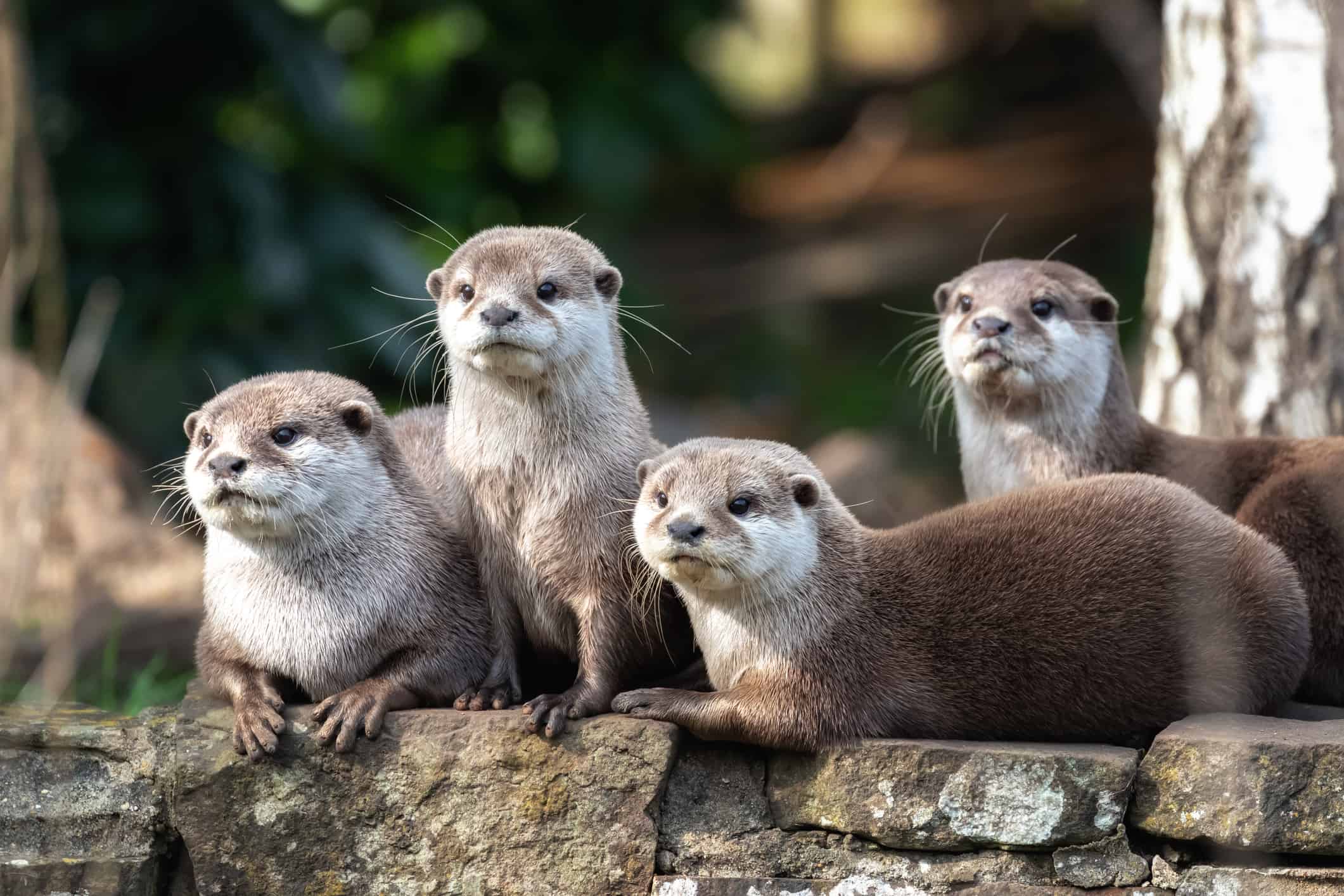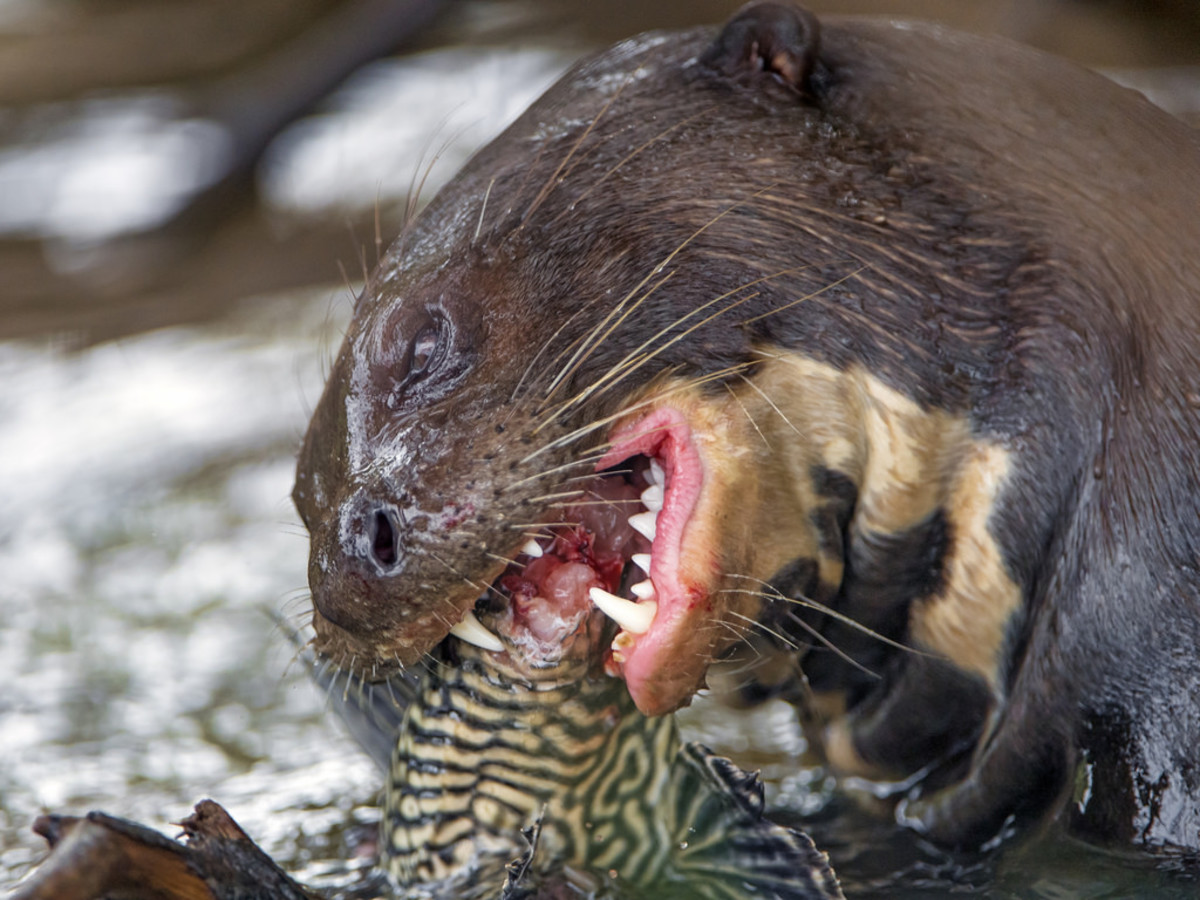To own an otter, you need a special permit and an appropriate habitat. Ensure access to a varied diet, including fresh fish and enrichment items.
Owning an otter presents unique challenges and responsibilities. These playful mammals require specialized care beyond that of common pets. Before bringing an otter home, understand the legal requirements, as keeping otters is illegal in many regions without a wildlife rehabilitation or exotic pet permit.
Potential owners need to create a living space that mimics an otter’s natural environment, complete with a swimming area. An otter’s diet is another crucial aspect; these animals thrive on a diet rich in proteins found in fresh fish and other aquatic organisms. It’s also vital to offer enrichment activities to satisfy their high intelligence and curiosity. Lastly, secure a vet experienced in treating exotic animals for regular check-ups and potential health issues. Given their complex needs, owning an otter is a significant commitment that should be approached with diligent research and preparation.
Legal Considerations For Pet Otters
Owning an otter as a pet requires careful legal consideration. One crucial step is to research local and state wildlife regulations thoroughly. These rules vary significantly depending on your location and can affect the legality of otter ownership. It is paramount to understand the specific requirements set forth by your local jurisdiction to ensure compliance.
The process often involves obtaining necessary permits and licenses, which can demand a detailed application process, evidence of adequate living conditions for the otter, and sometimes an inspection by authorities. Documentation and fees are typically also required, adding to the complexity of legally acquiring a pet otter.
Prospective owners must also be aware of international treaties like the Convention on International Trade in Endangered Species of Wild Fauna and Flora (CITES). These agreements may impact the ownership of otters, as many species are protected due to their risk of exploitation and habitat loss. Ensuring one’s compliance with CITES is essential to avoid legal repercussions and contribute to the conservation of otters worldwide.
Preparing Your Home For An Otter
Tailoring your living space to accommodate an otter requires considerable adjustment. Otters are active and playful creatures needing ample room to roam. Ensure your home includes a designated area that mimics their natural habitat. This means creating spaces that are both secure and adaptable to meet their energetic lifestyle.
Creating an otter-friendly environment is critical for their wellbeing. Incorporate various enrichment items, such as toys and hiding places, to stimulate their natural behaviors. These intelligent animals require mental stimulation to remain healthy and happy. Use non-toxic materials and make sure all objects are safe for otter play.
Installing pools and water systems is perhaps the most crucial aspect to consider. Otters thrive in aquatic environments and need access to clean water for swimming. Indoor or outdoor pools should be easily accessible and include a filtration system to maintain water quality. Balance the pH levels and keep the temperature controlled, ensuring a comfortable and safe swimming experience for your otter.
Nutritional Needs And Diet Planning
Otters have specific nutritional requirements that must be met for them to stay healthy. A diet rich in fresh fish, crustaceans, and mollusks provides essential proteins and fatty acids. A proper balance between meat and marine foods is critical, as it mirrors their natural eating habits.
Creating a diet schedule requires understanding otters’ feeding patterns and metabolic needs. Feeding them two to three times daily with the right portion sizes ensures they obtain the nutrition they need without overfeeding. Consultation with a veterinarian experienced in otter dietary needs can help in setting up the ideal feeding regimen.
Introducing supplements might be necessary to provide additional vitamins and minerals that might not be sufficiently present in their primary diet. Occasionally, nutritious treats like boiled eggs or small pieces of vegetables can be offered, but should not constitute a large portion of their diet.
Otter Health And Veterinary Support
Owning an otter requires a dedicated approach to their health and wellbeing. Ensuring you have access to a vet with otter expertise is crucial, as these specialized animals need care beyond what a regular pet would. Common veterinary practices may not be equipped to handle the nuanced needs of otters, so researching and locating a qualified veterinarian is a key step before bringing an otter into your home.
Considering the necessity of regular health checks and vaccinations, owners must commit to a schedule that promotes the well-being of their otter. These animals are susceptible to various health issues, which means that preventive care is not just recommended but essential. Handling common otter health issues further underscores the importance of a knowledgeable vet, one who can swiftly diagnose and treat any ailments that may arise.
Enrichment And Social Needs Of Otters
Owning an otter demands providing adequate mental stimulation to ensure their well-being. Otters have high intellect and thus, interactive play is crucial for their cognitive development. Implementing puzzle feeders and foraging toys can immensely benefit their mental health.
Social interaction is a core aspect of otter behavior, with these creatures often thriving in an environment where they can engage with other otters. It’s essential to foster this need for companionship, as it mirrors their natural social structures in the wild. Lone otters may suffer from stress and anxiety, indicating the importance of social bonds.
| Type of Toy | Activities | Benefits |
|---|---|---|
| Floating toys | Swimming and diving | Physical exercise |
| Tough chew toys | Gnawing and biting | Dental health |
| Kongs filled with treats | Food puzzle solving | Cognitive engagement |
Choosing the right toys and activities can help in providing both physical and mental enrichment for otters. Naturalistic elements like water features in their habitat can simulate a riverine environment, offering them the much-needed platform for instinctual behaviors like hunting.
Safety Measures And Emergency Preparedness
Ensuring your home and yard are safe and secure for an otter involves meticulous planning and execution. Reinforce fencing and ensure all potential escape routes are blocked to prevent your curious pet from wandering off. The internal environment should be similarly updated with special latches on cabinets and doors and removing hazardous items.
Emergency preparedness is a crucial aspect of responsible otter ownership. Develop an evacuation plan that includes your otter, and keep a kit ready with necessary supplies, such as food, medication, and first-aid items. Speaking of first aid, having a specialized first aid kit for your otter is vital. It should contain bandages, disinfectants, and contact information for your vet, as otters require specific care in case of injuries.
Remember, owning an otter requires not just affection, but a proactive approach to their safety and well-being.
Training And Behavior Management
Owning an otter requires a commitment to proper training and behavior management to ensure a harmonious relationship between pet and owner. House-training basics for otters are pivotal, involving consistent routines and positive reinforcement to teach them where and when to relieve themselves. Effective strategies often include creating a designated bathroom area and employing frequent, regular opportunities for the otter to use that space.
Addressing destructive behavior, often a result of an otter’s natural curiosity and playfulness, demands patience and creativity. Redirecting their energy towards appropriate toys and providing adequate physical and mental stimulation can significantly reduce unwanted actions. It’s imperative to otter-proof the environment, protecting both the animal and household items.
Reward-based training methods have been shown to yield excellent results with otters. Utilizing treats or favorite activities as incentives encourages them to repeat positive behaviors. Consistency and clarity in commands fortify the learning process, fostering a well-behaved pet capable of forming strong bonds with their caregivers.
Costs And Time Commitment Involved
Owning an otter comes with significant responsibilities and costs. Initial expenses include a proper enclosure, which can range from a few hundred to several thousand dollars, and licensing fees that vary by location. Otters also require a specialized diet, and these ongoing food costs, along with regular veterinary care, can add up quickly.
Otters demand consistent social interaction and intellectual stimulation, meaning owners should plan for multiple hours of enrichment activities every day. Failure to do so can result in behavioral issues.
Insuring an otter can be challenging and expensive due to their exotic animal status. It’s crucial to research and factor in the cost of a policy that covers potential health issues specific to otters.

Credit: a-z-animals.com
Frequently Asked Questions Of What Do You Need To Own An Otter
Is An Otter A Legal Pet?
In many places, keeping an otter as a pet is illegal. Research your local wildlife and exotic pet regulations to determine legality.
What Habitat Does An Otter Need?
Otters require a large aquatic space to swim and hunt. A pond or pool setup mimicking their natural habitat is crucial for their wellbeing.
How Much Does It Cost To Own An Otter?
Owning an otter can be expensive. Initial costs include habitat creation and legal permits. Ongoing expenses cover food, veterinary care, and enrichment activities.
What Do Otters Eat?
Otters predominantly eat fish, supplemented with crustaceans, mollusks, and small amphibians. A balanced diet mirroring their natural food sources is essential.
Conclusion
Owning an otter involves more than just fascination. It requires commitment, resources, and a sustainable environment. Be sure to weigh all responsibilities and legalities before diving in. With the right preparation and understanding, you could create a happy home for your new aquatic friend.
Cherish the unique bond, but always prioritize the otter’s well-being.

